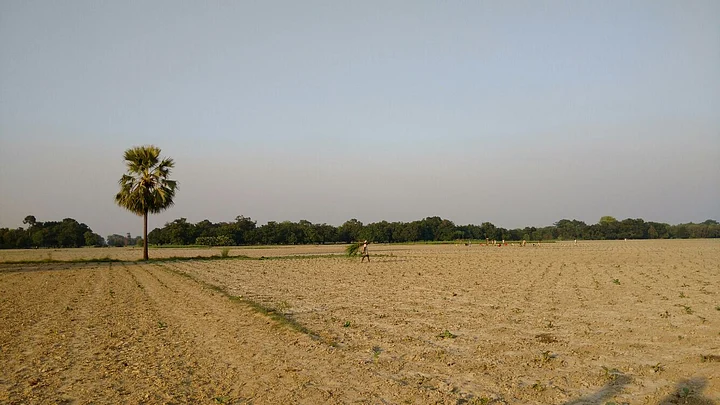Irshad Ahmad looks around the freshly-planted tobacco saplings and rues that this is the last window for survival. “If it does not rain now, the crop will be destroyed”, says the 62-year-old farmer whose main source of livelihood is the cash crop that is farmed across acres of farmland in Rampur, Samastipur.
The district goes to vote on Monday and already school compounds are filling in with Central forces to ensure smooth polling.
Bihar is the sixth largest tobacco producing state in the country. Besides Samastipur, it is also grown in Vaishali, Muzaffarpur, Darbangha and Sitamarhi.
After the plant grows, it’s cut and dried and sold in the market to traders from Assam, West Bengal, Uttar Pradesh, Jharkhand and Madhya Pradesh. Depending on the quality, it gets sold for anything between Rs 70 to Rs 200 per kilogram.
We have got some relief from the government in the last few years, but we hear on TV and on the radio that chewing tobacco is bad for health, so there is a lobby that consistently opposes any relief to us farmers. We could grow vegetables, but that again leaves us at the mercy of the weather gods and tobacco is a cash crop and it gets us more money. Moreover, tobacco farming has been passed on from generation to generation It’s the only thing we know.
– Mohammad Irshad, Tobacco Farmer in Rampur
In October 2013, the Nitish government announced exemption of tax from khaini in view of the demand made by farmers who told the Chief Minister that their produce was being seized and fines and taxes being imposed on them.
In 2014, when Jitan Ram Manjhi was Chief Minister he hiked the tax on tobacco products by 30 percent, but khaini was left untouched.
The JD(U) government has had to resist immense pressure from mainstream media and studies, like the one conducted by the Global Adult Tobacco Survey, that revealed that every second person in Bihar is addicted to khaini.
Irshad believes the fight will be between JD(U) and BJP in Rampur, but does not rule out the role played by independent candidates. In the end, the smaller parties and the independents is going to decide who forms the next government.
Abhi ke liye hum upar dekh rahein hain, kuch baarish toh ho.
–Mohammad Irshad, Tobacco farmer
For full coverage of Bihar Polls 2015, click here.
